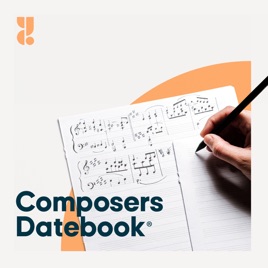
Advertise on podcast: Composers Datebook
Rating
4.7 from
Country
This podcast has
36 episodes
Language
Publisher
Explicit
No
Date created
2007/03/19
Average duration
2 min.
Release period
1 days
Description
Composers Datebook™ is a daily two-minute program designed to inform, engage, and entertain listeners with timely information about composers of the past and present. Each program notes significant or intriguing musical events involving composers of the past and present, with appropriate and accessible music related to each.
Podcast episodes
Check latest episodes from Composers Datebook podcast
Michael Daugherty's 'Brooklyn Bridge'
2024/02/25
Synopsis
“Pssst. Hey, buddy – wanna buy a bridge? No? Well, how about a clarinet concerto, then?”
As most of us know, the Brooklyn Bridge is not for sale, but this New York icon has reputedly been sold to many unsuspecting visitors. After its opening in 1883, Harper's Monthly wrote, “The wise man will not cross the bridge in five minutes, nor in 20, [but] will linger to get the good of the splendid view about him.”
American composer Michael Daugherty did just that and came up with a concerto for clarinet and wind ensemble that premiered in Ann Arbor, Michigan, and then, on today’s date, in 2005 was performed at New York’s Carnegie Hall.
“Like the four cables of webs of wire and steel that hold the Brooklyn Bridge together,” Daugherty says, “my ode to this cultural icon [in] four movements: East (Brooklyn and Brooklyn Heights); South (Statue of Liberty); West (Wall Street and the lower Manhattan skyline); and North (Empire State Building, Chrysler Building and Rockefeller Center). In the final movement, I imagine Artie Shaw, the great jazz swing clarinetist of the 1940s, performing in the once glorious Rainbow Room on the 65th floor of the Rockefeller Center.”
Music Played in Today's Program
Michael Daugherty (b. 1954): Brooklyn Bridge; Maureen Hurd, clarinet; Rutgers Wind Ensemble; William Berz, cond. Naxos 8.57252999
more
Rorem's 'Our Town'
2024/02/24
Synopsis
It’s a play both Aaron Copland and Leonard Bernstein wanted to make into an opera, but the playwright always said, “No.”
We’re talking about Our Town, by Thornton Wilder, a nostalgic but bittersweet look at life, love and death in Grover’s Corners, New Hampshire, set in the early 1900s, complete with white picket fences, boy meets girl, and a drugstore soda counter.
It wasn’t until decades after Wilder’s death in 1975 that the executor of the Wilder estate, after a long search for just the right composer for an Our Town opera, settled on Ned Rorem, and a libretto crafted by poet J.D. McClatchy, who also happened to be an authority on Wilder’s works.
Rorem was in his 80s when the opera premiered on today’s date in 2006 at the Opera Theater at the Jacobs School of Music in Bloomington, Indiana.
The New York Times thought the resulting opera was a success, writing, “Our Town opens with a hymn, and Rorem retained and refracted the familiar melody, turning pat modulations slightly bitter, as if the music were heard through a lens of nostalgia that turned it sepia. This nostalgia proved a hallmark of the score.”
Music Played in Today's Program
Ned Rorem (b. 1923): Opening, from Our Town; Monadnock Music; Gil Rose, cond. New World 80790
more
Henry Martin's '48'
2024/02/23
Synopsis
Bach’s Well-Tempered Clavier is a collection of 48 preludes and fugues for solo keyboard in two sets, each covering all 24 major and minor keys. This music has become a bible for pianists, as well as a challenge for subsequent composers to try to imitate. In the early 1990s, American composer and pianist Henry Martin tossed his hat into the ring with the completion of his first set of 24 Preludes and Fugues for piano, and soon after published a second set of 24.
On today’s date in 1992, at the National Gallery in Washington, D.C., pianist Sara Davis Buechner performed three of Martin’s Preludes and Fugues for broadcast on NPR and later made recordings of all of Martin’s “48.”
One enthusiastic reviewer of those recordings, Michael Barone, host of American Public Media’s Pipedreams organ program, wrote of Martin’s music, “We get shades of Debussy's impressionism, the vibrant jazzy riffs of Art Tatum, the spacey harmonies of John Coltrane, and the sophisticated improvisations of Bill Evans … but Martin's own individual genius shines brightly.”
Barone’s enthusiasm resulted in his commissioning Martin to compose another set of 24 preludes and fugues — this time for organ! We think Bach would have approved.
Music Played in Today's Program
Henry Martin (b. 1950): Prelude & Fugue No. 1; (Ken Cowan, organ) Pipedreams 1004
more
Lowell Liebermann
2024/02/22
Synopsis
In recounting the life story of many composers, it’s a familiar and perhaps romantic cliché that their work will be — as a matter of course — not appreciated by their contemporaries, and that the composer in question will have to toil for years in obscurity before his or her music is appreciated by performers and audiences.
In reality, we’re happy to report, that isn’t always the case.
Consider, for example, American composer Lowell Liebermann, who was born in New York on today’s date in 1961. When he was 16, his Piano Sonata No. 1 premiered at Carnegie Hall, resulting in a number of prizes and awards. By his 30s, Liebermann was being commissioned and championed by some of the leading performers of our time.
For James Galway, Liebermann composed a flute concerto, and Liebermann’s two-act opera The Picture of Dorian Gray was the first work the Monte Carlo Opera commissioned from an American composer. In 1998, Liebermann was appointed composer-in-residence with the Dallas Symphony, and that orchestra premiered his Symphony No. 2 in February 2000, and, in a symbolic millennium gesture, simulcast their performance on the new-fangled worldwide web.
Music Played in Today's Program
Lowell Liebermann (b. 1961) Flute Concerto; James Galway, flute; London Mozart Players; Lowell Liebermann, cond. BMG 63235
Symphony No. 2; Dallas Symphony and Chorus; Andrew Litton, cond. Delos 3256
more
Cowell for winds
2024/02/21
Synopsis
Henry Cowell was one of the most prolific of all 20th-century American composers. Some of his works are aggressively experimental in nature, while others tap into folk traditions and world music. The range and variety are quite remarkable. Cowell wrote so many works, in fact, that even the composer himself often had trouble keeping track of all he had written.
Take today’s genial little Woodwind Quintet, for example. It was written in the early 1930s for the great French flute virtuoso Georges Barrère, who commissioned and premiered many new works involving his instrument. In 1934, Barrère even made a recording of the suite for New Music Quarterly, a publishing venture bankrolled by none other than the retired insurance executive and part-time composer Charles Ives.
After that recording, Cowell went on producing new works, and the manuscript of his Woodwind Quintet remained with Barrère, who apparently just filed it away. The music didn’t surface again until 1947, when it was discovered among the late flutist’s collection of scores.
On today’s date in 1948, Cowell’s Woodwind Suite received its first concert performance at Columbia University in New York City and quickly established itself as one of Cowell’s most popular compositions.
Music Played in Today's Program
Henry Cowell (1897-1965): Suite for Woodwind Quintet; Solaris Capstone 8677
more
Bach and Handel on a date?
2024/02/20
Synopsis
In 1724, Feb. 20 fell on a Sunday, and at St. Thomas Church in Leipzig, Jesus nahm zu sich die Zwölfe, or, in English, Jesus Gathered the 12 to Himself, a church cantata by Johann Sebastian Bach, was performed as part of the Sunday service.
Meanwhile, on Feb. 20 in London that same year, audiences at the King’s Theater in the Haymarket heard the premiere of Giulio Cesare in Egitto or, Julius Caesar in Egypt, a new Italian opera by George Frideric Handel.
How interesting to find Bach in church and Handel in the theater, on the same date — but not, as it turns out, on the same day.
In 1724, Bach’s Germany kept track of time under the Gregorian calendar, but in Handel’s England, the older Julian calendar was still used, and so Handel’s calendar would say Feb. 20 was a Thursday, while Bach’s would say was it was a Sunday. It wasn’t until 1752 that England adopted the same calendar that Germany used — the Gregorian one we still use today.
In the 18th century, apparently, you didn’t need Albert Einstein to remind you that time is a very relative concept!
Music Played in Today's Program
J.S. Bach (1685-1750): Excerpt fr Cantata No. 22; Yo Yo Ma, cello; Amsterdam Baroque Orchestra; Ton Koopman, cond. Sony Classical 60680
George Frederic Handel (1685-1757): Excerpt, fr Giulio Cesare; Barbara Schlick, soprano; Concerto Cologne; Rene Jacobs, cond. Harmonia Mundi 90.1458
more
Sibelius' Sixth
2024/02/19
Synopsis
On today’s date in 1923, Finnish composer Jean Sibelius conducted the premiere performance of his Symphony No. 6 in Helsinki. He had begun work on it about five years earlier and at that time described his vision for the symphony as follows:
“The Sixth Symphony is wild and passionate in character. Gloomy with pastoral contrasts. Probably in four movements with a finale, which will build to a gloomy, wild romp of the orchestra in which the main theme disappears.”
That might have been the original idea, but the final product turned out quite different and musicologist Michael Steinberg offered a more spot-on description: “The Sibelius Sixth is transparent, pastoral, lyrical and notably even-tempered — a sanctuary fashioned out of music.”
In the pecking order of popularity, the Second and Fifth of Sibelius’ seven symphonies rank at the top, with the Sixth probably the least-often heard in concert. But the always-perceptive Steinberg wrote, “To this day, the Sixth remains the least known (or understood) of the seven symphonies, and yet for those who make its full acquaintance, the Sixth may become the most cherished of them all.”
Music Played in Today's Program
Jean Sibelius: Symphony No. 6
more
Berlioz uses his imagination
2024/02/18
Synopsis
Some things are best left to the imagination — at least that’s what French Romantic composer Hector Berlioz came to think regarding opera. Berlioz didn’t have the best of luck getting his operas staged during his lifetime, and, on the few occasions he did, the resulting performance fell far short of his ideal. Increasingly, Berlioz turned to what might be called the “Theater of the Imagination,” composing concert works that were, for all intents and purposes, operas minus the staging and costumes.
One of these, which Berlioz called “a dramatic legend” and premiered in 1846, was The Damnation of Faust. It was based on the famous Faust plays of German poet Goethe. Like many of Berlioz’s works, The Damnation of Faust proved an artistic success — but a box office failure — at its premiere as an unstaged concert piece at the Opera Comique in Paris.
Some five decades later, on today’s date in 1893, The Damnation of Faust was revived as a fully staged opera at the Monte Carlo Opera. It proved such a success that in short order it was staged in Milan, Moscow and Liverpool, and even reached the shores of America, courtesy of the French Opera in New Orleans.
Music Played in Today's Program
Hector Berlioz (1803-1869): Dance of the Sylphs, fr La damnation de Faust; Baltimore Symphony; David Zinman, cond. Telarc 80164
more
Betty Jackson King
2024/02/17
Synopsis
Today marks the birthday of American composer, choral conductor and educator Betty Jackson King. She was born in Chicago in 1928, where she earned her master’s degree in composition at Roosevelt University. Her master’s thesis was an opera, Saul of Tarsus, whose libretto was written by her father, the Rev. Frederick D. Jackson.
King is perhaps best known for her sacred and choral works, especially her arrangements of spirituals, and, according to her family, her musical career reflected her deep religious faith. “Over my head, I hear music in the air, so there must be a God somewhere,” was her oft-stated creed.
King also wrote secular works, including a ballet for children, chamber works, art songs and solo pieces for piano and organ. She was an active teacher and choral conductor in her native Chicago before moving to Wildwood, New Jersey, where she taught, conducted and composed for the rest of her life.
A few years before King’s death in 1994, soprano Kathleen Battle performed and recorded "Ride-Up in the Chariot,” one of Jackson’s spiritual arrangements, at a televised Carnegie Hall concert of spirituals conducted by James Levine.
Music Played in Today's Program
Betty Jackson King (1928-1994): Spring Intermezzo, fr Four Seasonal Sketches; Helen Walker-King, vn; Gregory Walker, p. Leonard 339
more
Copland's 'Vitebsk'
2024/02/16
Synopsis
On today’s date in 1929, a chamber trio by Aaron Copland, Vitebsk, premiered at Town Hall in New York City. Copland said it was based on a Jewish folk tune from a Russian village called Vitebsk that he had once heard used in a play.
Two string players from the famous Belgian Pro Arte Quartet and the great German pianist Walter Gieseking were booked for the premiere. Despite the distinguished performers, the performance came off as something of a slapstick comedy.
According to one of Copland’s friends present that night, the heavy-set cellist accidentally knocked over the violinist’s music stand when he came on stage, and while bending over to retrieve his music knocked over his own stand, strewing music all over the stage. Then, just as he began Copland’s piece, his cello string snapped with a loud, comically timed twang.
Years after the premiere, when Copland visited the Soviet Union, Russian audiences expressed amazement that any American composer would choose to name a piece after Vitebsk, which, rather than a quaint Russian village like the one evoked in the musical Fiddler on the Roof, was in fact a large industrial complex resembling Pittsburgh or Cleveland.
Music Played in Today's Program
Aaron Copland (1900-1990): Vitebsk; Gregory Ellis, violin; Christopher Marwood, cello; Michael Collins, piano ASV 1081
more
Michael Praetorius
2024/02/15
Synopsis
Today’s date in 1621 marks the passing of a famous German composer of the Renaissance period, born Michael Schultze, or Schultheiss, but who Latinized his name to Praetorius, and under that name became one of the most popular composers of his time.Praetorius died 64 years before the birth of J. S. Bach, the great German composer of the Baroque age. Praetorius was the son of a Lutheran minister, and like Bach, wrote a good deal of Lutheran church music, and his 1609 setting of the German hymn tune “Es Ist ein Ros Entsprungen” (“Lo, How a Rose E'er Blooming”) is still sung by choirs today.But Praetorius’ most enduring contribution to music was secular, not sacred. In 1612, he collected and harmonized more than 300 instrumental Renaissance dance tunes and published them in a compendium he titled Terpsichore, after the name of the Greek muse of the dance. Praetorius included a list of instruments that could be used in performing these dances but does not specify which ones should play each dance. Not to worry, since Praetorius also published a work titled Syntagma Musicum, or The Syntax of Music, a detailed history and description of all known musical instruments from biblical times to the present — so take your pick!
Music Played in Today's Program
Michael Praetorius (1571-1621): Dances from Terpsichore (New London Consort; Philip Picket, cond.) Decca/L’oiseau-lyre 4759101
more
Faure's Piano Quartet
2024/02/14
Synopsis
On today’s date in 1880, a quartet for piano and strings was premiered in Paris, with its composer, 24-year-old Gabriel Fauré, at the keyboard. Now in 1880, many Parisians knew two things about Fauré: first, that he was a talented pupil of Camille Saint-Saens; and second, that he had been engaged for years to Marianne Viardot, the daughter of legendary French singer Pauline Viardot-Garcia, and that Marianne had suddenly broken off the engagement, leaving the young man heartbroken.
French pianist Marguerite Long described the quartet’s slow movement as “the sorrowful echo of the breakup of Fauré’s engagement with Marianne Viardot,” reporting she could not hold back her tears when she once performed the work with Fauré turning pages for her.
But Faure’s friend and biographer Émile Vuillermoz would dismiss the suggestion with a loud French snort, protesting that “Fauré’s reserve always prevented him from following the example of Romantic artists who allowed the whole world to witness their personal frustrations. … He would never have allowed his private feelings to become a public spectacle!”
In any case, Fauré’s first Piano Quartet is now regarded as one of his early masterpieces, so perhaps it’s both: a breakup and break-away work.
Music Played in Today's Program
Gabriel Fauré (1845-1924): Piano Quartet No. 1 (Domus Ensemble) Hyperion 66166
more
Podcast reviews
Read Composers Datebook podcast reviews
danktighny
2024/02/07
Meditation
I stop what I’m doing to really listen to this. It is my 2 minute musical oasis wherever it lands in my day. Thank you.
pigslauterer
2023/12/04
Great listen everyday
I listen to it every day and it’s very interesting
Pudelmom
2023/06/05
Wonderous!
Wish there were links where I could purchase the item played, like the Pinkham Three Latin Motets!!!!!🥰
EmmettHogan
2023/01/12
My Quotidian Reminder about Art
Hello! I’m a lawyer in Chicago, who’s recuperating from a head injury in 2018/19. Since then: I picked up this quick, refreshing podcast. I listen ...
more
WoodfordSki
2021/10/01
A Delight
It makes the day brighter.
Swage me ts
2021/07/04
Moments of transcendence
I’m so grateful for this podcast. I listen to it every morning when I walk my dog, and it brings two minutes of beauty and calm into my life. Personal...
more
try again1
2020/04/20
My favorite podcast!
The short format introduces me to many composers. Sometimes I do further research on the ones that interest me.
Jen's_Atari2600
2021/04/01
😑 Aria Code!
The podcast itself is wonderful, concise and informative.
Unfortunately I unsubscribed (and took off one star ⭐️), because I’m tired of hearing the s...
more
fivespot after dark
2018/01/18
Nicely done
This is a nicely done “on this day in classical music history” type of program. Although episodes are quite short (only a few minutes long) it helps ...
more
Bill Howard
2012/02/23
Piano tuner, player, singer, and listener.
Very glad to have this wonderful service.
Podcast sponsorship advertising
Start advertising on Composers Datebook & sponsor relevant audience podcasts
You may also like these music history Podcasts

4.8
957
533
Turned Out A Punk
Turned Out A Punk

4.9
217
248
Drum History
Bart Vanderzee

4.9
751
248
Chris DeMakes A Podcast
Chris DeMakes

4.5
193
845
Kreative Kontrol
Vish Khanna / Entertainment One (eOne)

4.9
16
182
Booked On Rock with Eric Senich
Eric Senich
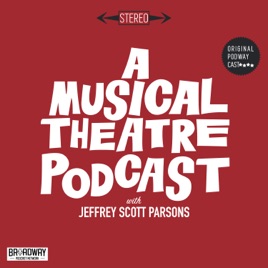
4.9
132
126
A Musical Theatre Podcast
Jeffrey Scott Parsons
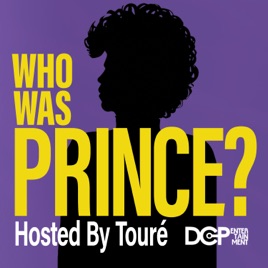
4.1
180
13
Who Was Prince?
DCP Entertainment
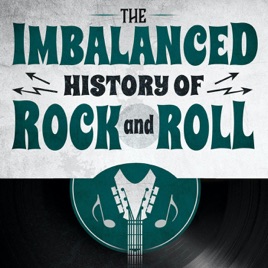
4.5
84
340
The Imbalanced History of Rock and Roll
The Imbalanced History of Rock and Roll
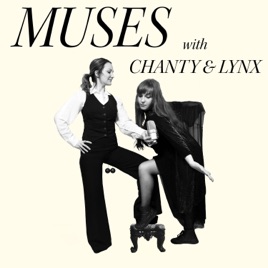
4.4
88
191
Muses
Muses

4
133
61
Tinsel Tunes - The Christmas Music Podcast
Tinsel Tunes



